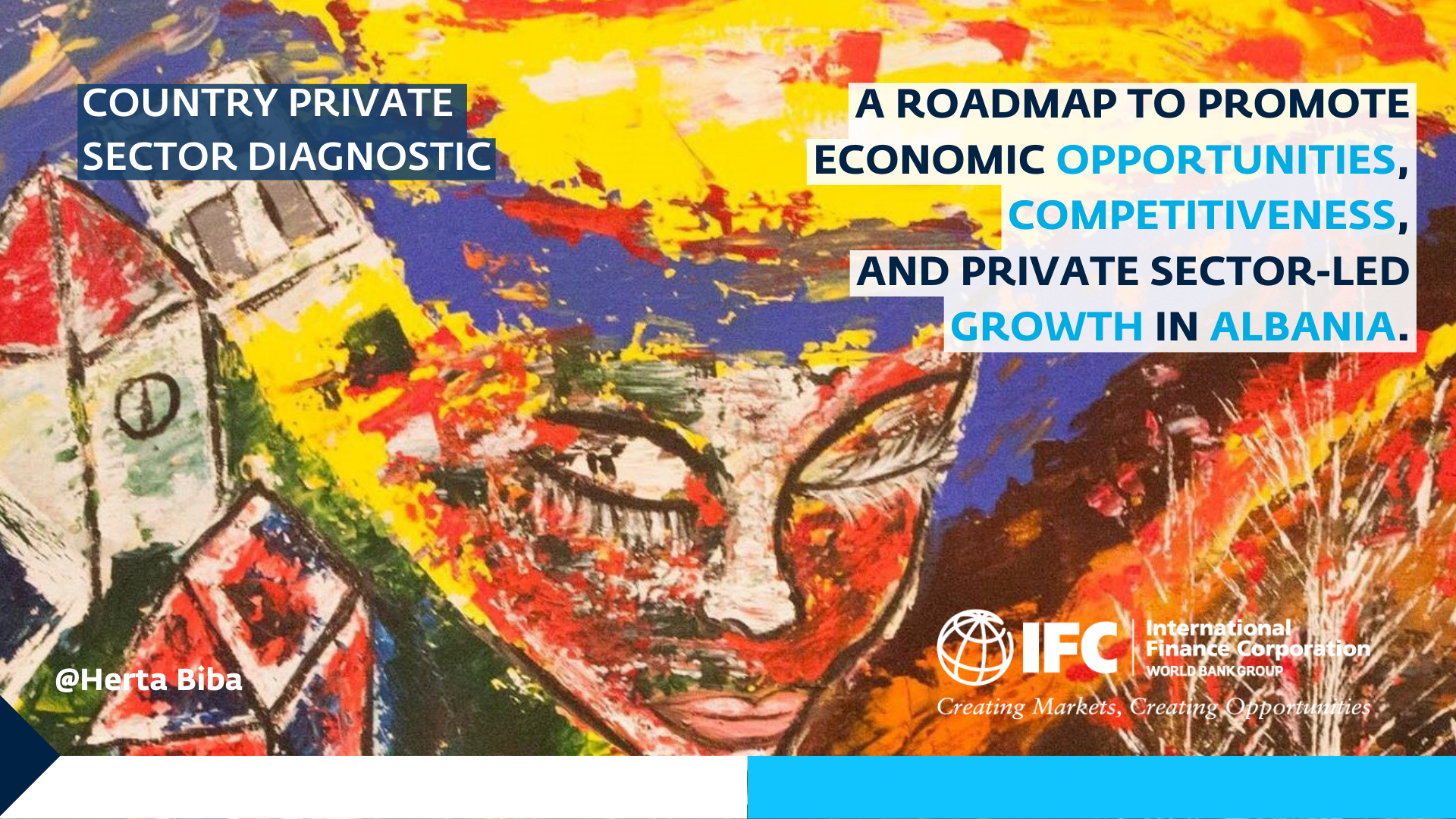Tirana, Albania, June 15, 2022—Bolstering private sector investments, especially in the agricultural and tourism sectors, and optimizing post-COVID market changes to help the nascent auto-parts industry grow and integrate with the European automotive value chain, will help create jobs and spur growth in Albania, according to a new World Bank Group report.
The Albania Country Private Sector Diagnostic Report (CPSD/the Report), prepared by IFC and the World Bank, says the private sector, as the engine of Albania's economic development, faces serious challenges—including limited access to finance, low levels of firm technology upgrades, skills shortage, and infrastructure gaps, among others. Yet, the private sector is vital to expanding the country's economic base, promoting faster and more diversified export-oriented growth.
Photo credits: Herta Biba
Further, the Report highlights that Albania can achieve resilient and more sustainable growth by strengthening trade integration with the global economy, as well as the European Union, while expanding the economic role of the private sector. Given the country's small domestic market, economies of scale in manufacturing can only be achieved by integrating with global and regional value chains, a process that hinges on the country's ability to attract foreign direct investment.
"The recent crisis has shown the importance of finding new ways for private sector development," said Delina Ibrahimaj, Minister of Finance and Economy. "The CPSD Report offers valuable recommendations with regard to three important sectors, which have demonstrated and continue to demonstrate their potential for the sustainable growth of the Albanian economy."
While economic openness is vital to Albania's continued growth, the country's heavy reliance on an undiversified set of exports exposes the economy to changing external conditions.
"In response, this CPSD aims to help the Albanian government promote robust economic growth, diversification, and competitiveness by fostering the development of the private sector," said Damien Shiels, IFC's Acting Regional Director for Europe. "However, as the Report underscores, improving the business environment and stepping up investments in technology and innovation will be key for Albania to accelerate the recovery and promote a resilient private sector."
"In this turbulent time, fostering a robust and sustainable recovery will require a more productive and resilient private sector," said Emanuel Salinas, World Bank Country Manager for Albania. "This report helps to understand which segments of the private sector are more promising and how public policies can provide the framework, enabling the private sector to work more efficiently, and create more and better jobs."
The World Bank Group's CPSDs provide in-depth economic analyses that identify opportunities to unlock private sector investment and create opportunities for more people.
The World Bank Group will channel its private sector development lending, investment, and advisory operations in Albania to target the sectors and areas of reform highlighted in the CPSD and help the government of Albania prioritize the actions which the report recommends.
About the Country Private Sector Diagnostic (CPSD)
The World Bank Group's Country Private Sector Diagnostics aim to identify sectors where private sector solutions can create or expand markets and make substantial contributions to development impact. The diagnostics use a structured approach to analyze key sectors with unrealized private sector potential in each country, select several sectors for deeper analysis, and make recommendations for policy action. The sector analyses, conducted with significant input from teams across the World Bank Group and from external partners including governments, provide valuable information on the challenges and opportunities to better leverage the private sector to achieve developmental objectives. The CPSD aligns with the World Bank Group's Maximizing Finance for Development (MFD) approach, which looks to private sector solutions to reach the 2030 Sustainable Development Goals.
About IFC
IFC - a member of the World Bank Group - is the largest global development institution focused on the private sector in emerging markets. We work in more than 100 countries, using our capital, expertise, and influence to create markets and opportunities in developing countries. In fiscal year 2021, IFC committed a record $31.5 billion to private companies and financial institutions in developing countries, leveraging the power of the private sector to end extreme poverty and boost shared prosperity as economies grapple with the impacts of the COVID-19 pandemic. For more information, visit www.ifc.org.
About the World Bank - The World Bank provides financing, global knowledge, and long-term commitment to help low- and middle-income countries end poverty, achieve sustainable growth, and invest in opportunity for all. We comprise the International Bank for Reconstruction and Development (IBRD), the world's largest development bank, and the International Development Association (IDA), one of the largest sources of funding for the world's poorest countries. With the other World Bank Group institutions as well as partners across the public and private sectors, we are helping build solutions to the global challenges of the 21st century in all major sectors of development. A world where no one lives in poverty and everyone has the opportunity for a better life is within our reach. For more information visit: www.worldbank.org.
Stay Connected:
www.facebook.com/IFCwbg
www.twitter.com/IFC_org
www.youtube.com/IFCvideocasts
www.ifc.org/SocialMediaIndex
www.instagram.com\ifc_org
Note: The technical assessments included in the report are based on the latest available information at the time of preparation and may not fully reflect the impact of the pandemic and of more recent developments affecting the global economy.
Contacts
Stay Informed
Sign up to have customizable news & updates sent to you.
